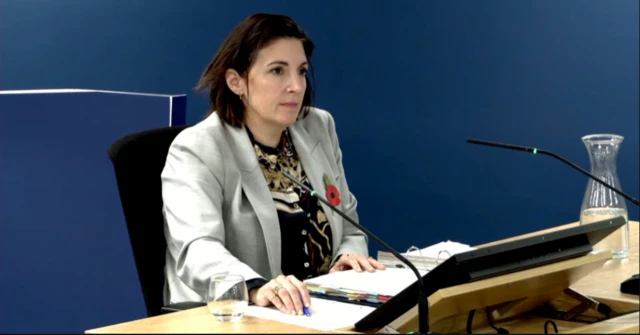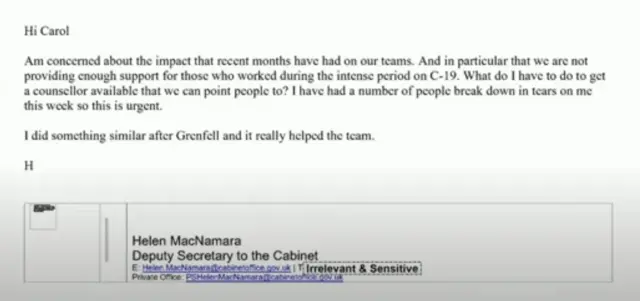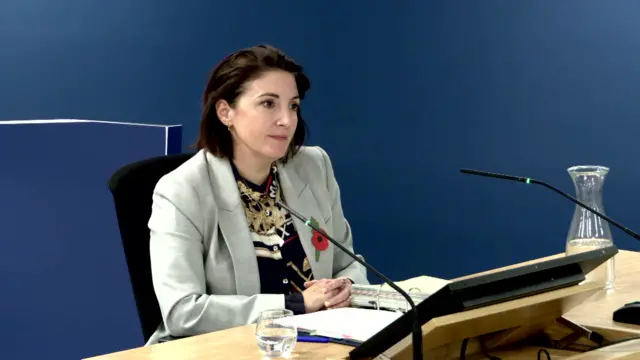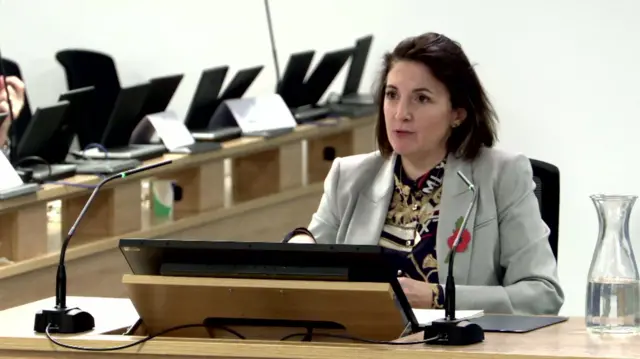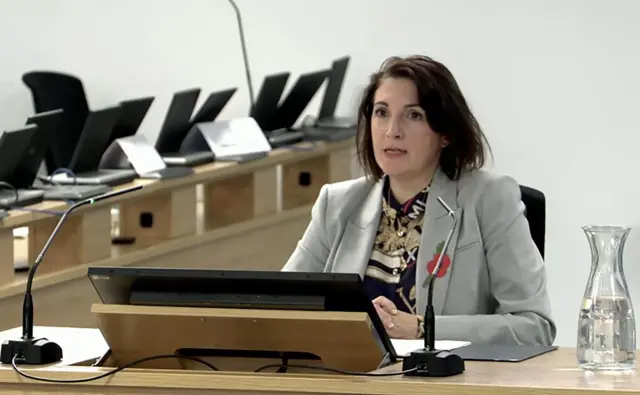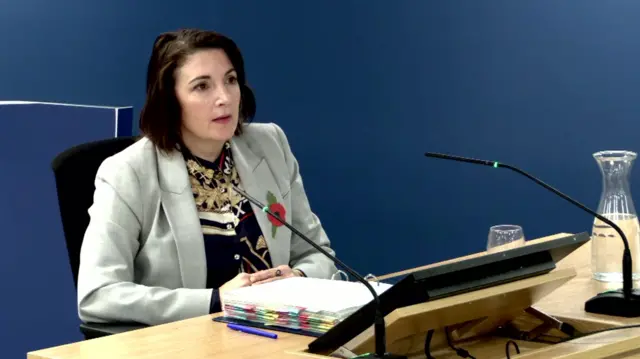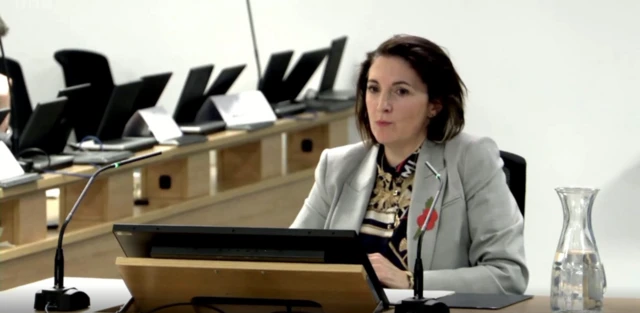Covid rules were not followed in Downing Street - MacNamarapublished at 12:38 GMT 1 November 2023
"I would find it hard to pick one day when the regulations were followed properly inside that building," former deputy cabinet secretary, Helen MacNamara, says - referring to No 10 in Downing Street.
"I know that because.... there was one meeting where we absolutely adhered to the guidance, to the letter, and that was the cabinet meeting, and everybody moaned about it and tried to change it repeatedly. So I know how exceptional it was to really, really, really properly follow the guidance."
Lawyer Andrew O'Connor KC asks MacNamara about the importance of people leading the country following the rules at the time.
MacNamara agrees on its importance, and when asked about a party she attended on 18 June 2020, she says: "This shouldn't have happened".
"In retrospect all sorts of things were wrong," she adds.
She says people were "rightly offended" that she attended a party herself.
